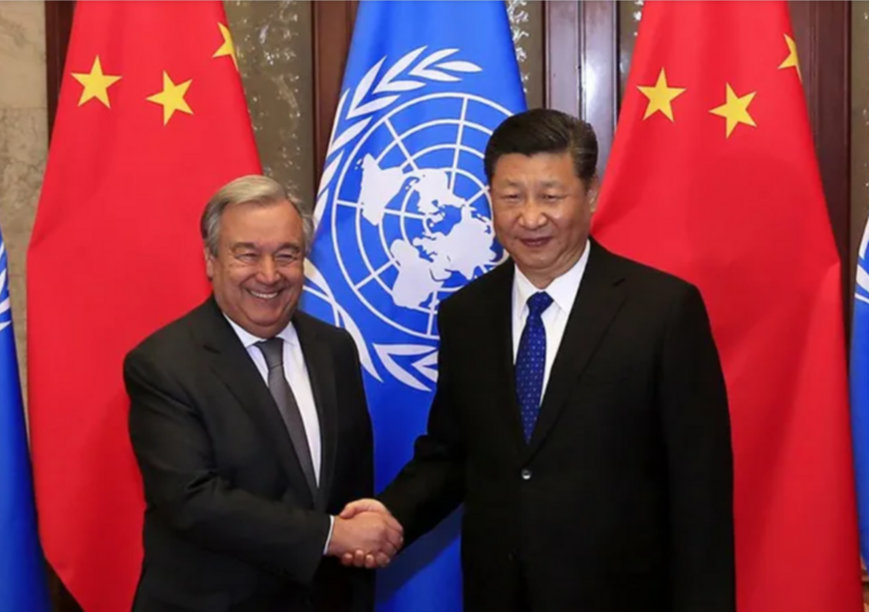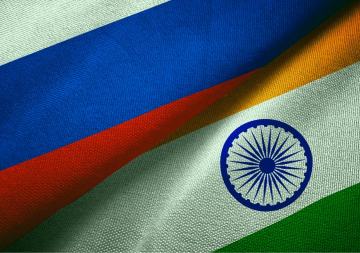
The United Nations celebrated the International Day of Multilateralism and Diplomacy for Peace on the 24 April. It was adopted by the General Assembly in 2018 to disseminate the advantages of multilateralism and diplomacy. In a recent event commemorating the day, China's Deputy Permanent Representative to the United Nations remarked how the United States (US) was furthering its own agenda under the façade of a “rules-based international order” and imposing it on other nations. The bulk of the Chinese statement was placed on promoting the UN as the central multilateral platform that needs to be reformed to realise an equal and multipolar world. As per the statement, the Chinese await the Summit of the Future in September which aims to reshape the multilateral governance architecture to make it relevant to the current global realities. China’s official statement on the existing global governance explicitly states that it opposes ‘hegemony, power politics, and the practice of a handful of countries monopolising international affairs’. Given the fact that the United Kingdom’s Parliament is currently investigating China’s instrumentalisation of the United Nations and how the People’s Republic of China (PRC) is trying to bribe and influence the UN system to get favours from the multilateral system, this concern about monopolisation of international affairs changes seems rather ironical.
A parliamentary investigation on Chinese multilateralism
The Foreign Affairs Committee of the UK’s Parliament tabled a report in 2021 which concluded that several autocratic states were attempting to co-opt strategically important multilateral organisations so that they could redesign the founding principles of these organisations as per their idea of how these organisations should serve their national interests. Subsequent to the report, the Committee initiated an inquiry in January 2024 to investigate how countries like China are trying to influence multilateral organisations. The ambit of the Committee includes investigating the role of states like Brazil, France, India, Türkiye, South Africa, Nigeria, Mexico, Egypt, Saudi Arabia, Russia, the US, and Indonesia in multilateral organisations. Despite this vast ambit, the most hard-hitting evidence submitted before the Committee remains against China and its role in influencing the United Nations’ bureaucracy. The Committee recently accepted written evidence from Emma Reilly, a UK citizen who was dismissed from the UN Human Rights Council as she failed to adhere to organisational ethics and went on to give public interviews as a whistleblower.
The ambit of the Committee includes investigating the role of states like Brazil, France, India, Türkiye, South Africa, Nigeria, Mexico, Egypt, Saudi Arabia, Russia, the US, and Indonesia in multilateral organisations. Despite this vast ambit, the most hard-hitting evidence submitted before the Committee remains against China and its role in influencing the United Nations’ bureaucracy.
As per the written evidence submitted before the Committee, the UN has been targeted equally along with the Chinese on several accounts. The PRC is alleged to have taken advantage of the UN’s poor funding disclosure where only the amounts of funds donated are disclosed, and not the conditionalities attached to these funds. As per Reilly’s written evidence, the PRC imposes a secret conditionality across the web of UN-agencies that the funds provided must not be spent in states having diplomatic relations with Taiwan. The statement also discloses that the PRC’s joint funding mechanism in collaboration with the UN, the Peace and Development Trust Fund, is a masked mechanism for promoting projects under the Belt and Road Initiative. This fund is filled by two annual tranches of US$10 million each, where the first tranche is reserved for BRI-related projects and the second tranche assists the UN Secretary-General for his pet projects, thus cushioning the fund from UN-based scrutiny.
As per the written evidence submitted before the Committee, the UN has been targeted equally along with the Chinese on several accounts. The PRC is alleged to have taken advantage of the UN’s poor funding disclosure where only the amounts of funds donated are disclosed, and not the conditionalities attached to these funds.
The evidence statement also accuses the Chinese of using lesser-known UN departments to get their way, for example, getting NGO representatives unlawfully excluded from the UN premises by using the office of the Under Secretary General for the Department of Economic and Social Affairs (DESA), which is now reserved for a Chinese national. These allegations around DESA remain crucial as this department is the nodal agency dealing with the UN Security personnel while allowing NGO delegates entry into UN engagements. It also is responsible for providing accreditations to NGOs wanting to attend UN engagements in New York. As alleged, the Chinese influence on DESA has led to certain changes where only those NGO representatives can now enter UN premises who have an ID provided by a state which is either a UN member state or has an observer status. These changes by DESA meant denying entry to NGO representatives that held IDs issued by governments who were not a UN member state nor an observer, falling squarely on Taiwan’s NGOs.
Another UN body under the lens of the Parliamentary inquiry is the Office of the High Commissioner for Human Rights (OHCHR) which has come under question after Reilly’s whistleblowing. The China factor remained the bulk of allegations as Chinese diplomats were accused of fishing for names of individuals who sought accreditation from OHCHR to speak against China’s human rights abuses. The mode of this transfer of names from OHCHR to PRC’s diplomats used to be via professional UN staff but since this malpractice got highlighted, this is apparently done by junior-level temporary staff hired for six- to eight-week contracts. Such staff members are more vulnerable than tenured UN bureaucrats and also apparently help maintain plausible deniability for tenured UN staff.
Another UN body under the lens of the Parliamentary inquiry is the Office of the High Commissioner for Human Rights (OHCHR) which has come under question after Reilly’s whistleblowing. The China factor remained the bulk of allegations as Chinese diplomats were accused of fishing for names of individuals who sought accreditation from OHCHR to speak against China’s human rights abuses.
Summit of the Future
The allegations levelled before the UK’s Foreign Affairs Committee do not pronounce a judgement on a complex yet functioning multilateral web of UN-hosted organisations. Yet, it holds enough significance for those who would be negotiating the trajectory of multilateralism in the upcoming Summit of the Future in September. One key area of impact that the Summit aims to make is the ‘United Nations 2.0’. It is a vision for a UN that undergoes a cultural and skills transformation throughout its entities and work culture so it can better support its member states. Improving transparency is one of the aims of realising a UN 2.0 where new tools and initiatives will be designed and implemented to make the multilateral bureaucracy a better, inclusive, efficient and transparent workplace. While its focus is increasingly towards data and innovation, it would be merited if the discourse on UN 2.0 also includes whistleblower safety and transparency of bureaucratic working within its entities. It is vexing when noted that no UN whistleblower since 1946 has gone on a successful UN career path after the whistleblowing. The UN 2.0 must also provide or at least attempt to provide answers to fissures that politicise entities like DESA and OHCHR as these allegations remain allegations on the UN bureaucracy. It does not bode well for strategic organisational reforms to focus on some states and their interference within the UN. What needs to be focused on is the inability of the UN bureaucratic structure to remain immune from these allegations, irrespective of whosoever the erring state may be. A focus on UN 2.0 and bureaucratic cushioning from state influence need to be high on the agenda of the Summit of the Future, not because some states have actively attempted to influence the UN bureaucracy, but because the UN project still marks a high point of collaborative diplomacy despite its flaws.
Angad Brar Singh is a Research Assistant with the Strategic Studies Programme at the Observer Research Foundation.
The views expressed above belong to the author(s). ORF research and analyses now available on Telegram! Click here to access our curated content — blogs, longforms and interviews.




 PREV
PREV


